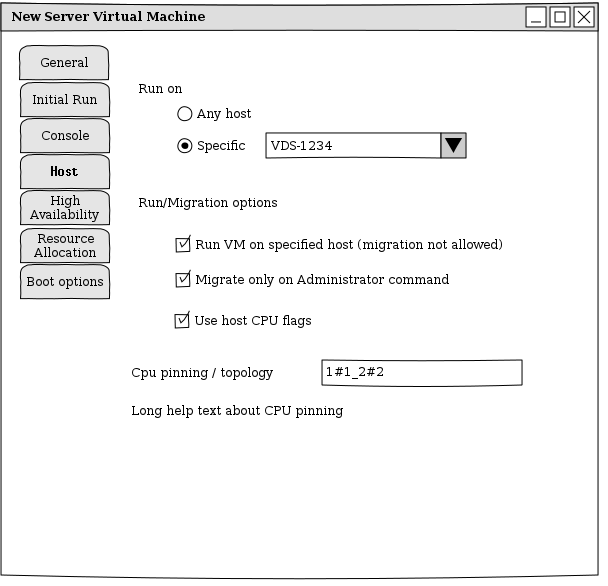Feature pages are design documents that developers have created while collaborating on oVirt.
Most of them are outdated, but provide historical design context.
They are not user documentation and should not be treated as such.
Documentation is available here.
Most of them are outdated, but provide historical design context.
They are not user documentation and should not be treated as such.
Documentation is available here.
CPU-Host Support
Summary
CPU-Host support allows the virtual machines to see and utilize the host’s CPU flags, this enables better performance in VM’s, at the price of worse portablity.
Owner
- Name: Laszlo Hornyak
Current status
- Merged
- Last updated date: 19 Dec 2012
Detailed Description
Since with host-passthrough gives the host cpu-capabilities to the VM’s CPU, migration can not happen to different CPU-models. This could still be acceptable if all the hosts are all uniform in the cluster.
- engine modifications:
- modify VmStatic, add useHostCpuFlags boolean property
- database schema modification in tables, views and stored procedures
- DAO modifications
- modify the Add/Edit VM dialog, add ‘use host cpu flags’ checkbox - it should be enabled only when Vm is pinned to host
- modify VmStatic, add useHostCpuFlags boolean property

- vdsm modifications:
- add hostPassthrough and hostModel as special cpu types http://gerrit.ovirt.org/9507 - merged
- rest-api:
- Add new element cpu_mode with values custom, host_model and host_passthrough to CPU
- example
<cpu>
<topology cores="1" sockets="1"/>
<cpu_mode>HOST_PASSTHROUGH</cpu_mode>
</cpu>
Label should be “Pass through host CPU”. When this is set the VM should be marked as non-migratable
Benefit to oVirt
Allows the users to get better performance from their VM’s through using all CPU capabilities - including the ones not handled by qemu/kvm
Dependencies / Related Features
- libvirt’s CPU-model and topology